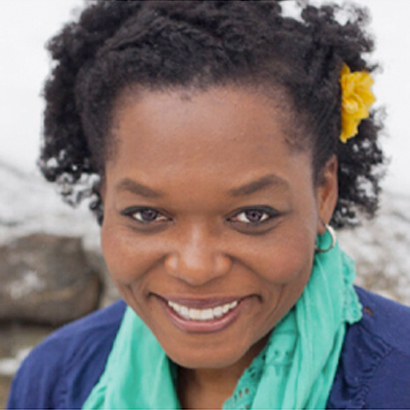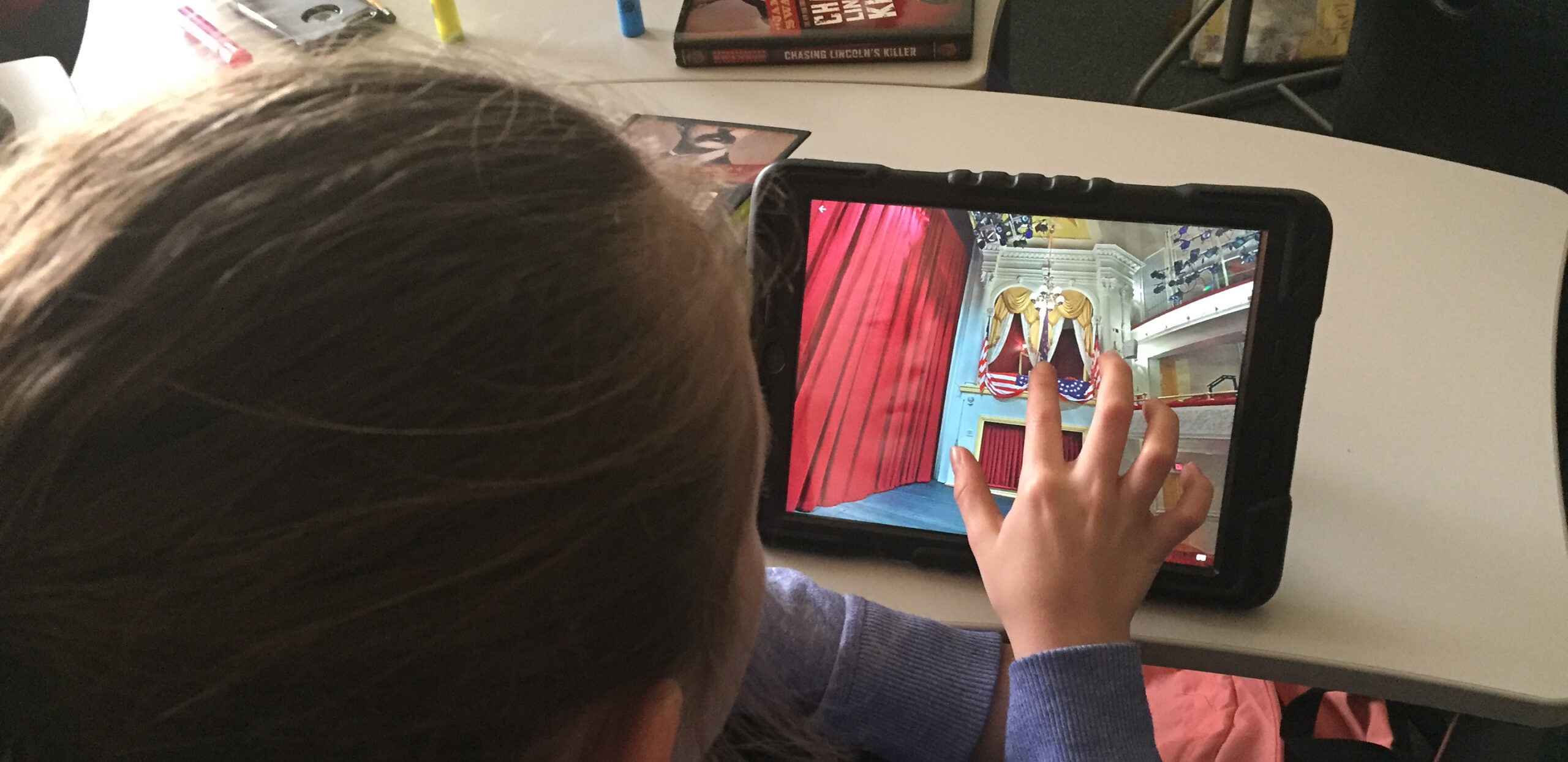
Talking with Educators: What it’s like Teaching Through a Pandemic
The COVID-19 pandemic has caused teachers to reevaluate what they do and how. Many have adapted to teaching online, others modified for socially distanced learning, none of them have experienced a time quite like this one before. Even veteran teachers have expressed that this year made them feel like first-year teachers again.
The Ford’s Theatre National Oratory Fellows program includes participants from all over the United States and across different grade levels. Prior to the pandemic, these educators met twice a year in person and held virtual monthly meetings throughout the school year. We’re grateful that this group was already used to meeting online and had a positive rapport with each other.

As the new school year began, Ford’s Theatre offered support and resources to help as they continued through their shifting educational environments. This thoughtful and supportive group diligently worked and continue to work to find the best ways to educate their students. To capture this year and their experience more formally, they completed a survey about their pandemic teaching experiences. Here is what they said.
What have you learned about yourself as an educator during the pandemic?
Jason Rude (Iowa): Many of my preconceived notions about what we can and can’t do in a school are being challenged. I’m already fairly progressive, but I am finding that I am being pushed in ways that I never thought would work and we are finding them to work. I have found that my assumptions of in-person learning not being able to work were a little miss guided. We have been able to be in-person, with masks, spread out since the beginning of the year. We have not had major outbreaks of cases in our schools. Basically, all cases have originated from outside the building where people have chosen not to social distance or wear masks.
Caitlin Goodwin (NY): I have learned how important is to prioritize children and their social emotional needs over content and standards during this time. I have always tried to make learning fun, but I have made it a point to shift to a lot of creative assessments and projects that allow kids to have more fun and express themselves.
Susan Scola (MD): I have learned I am more adaptable than I thought.
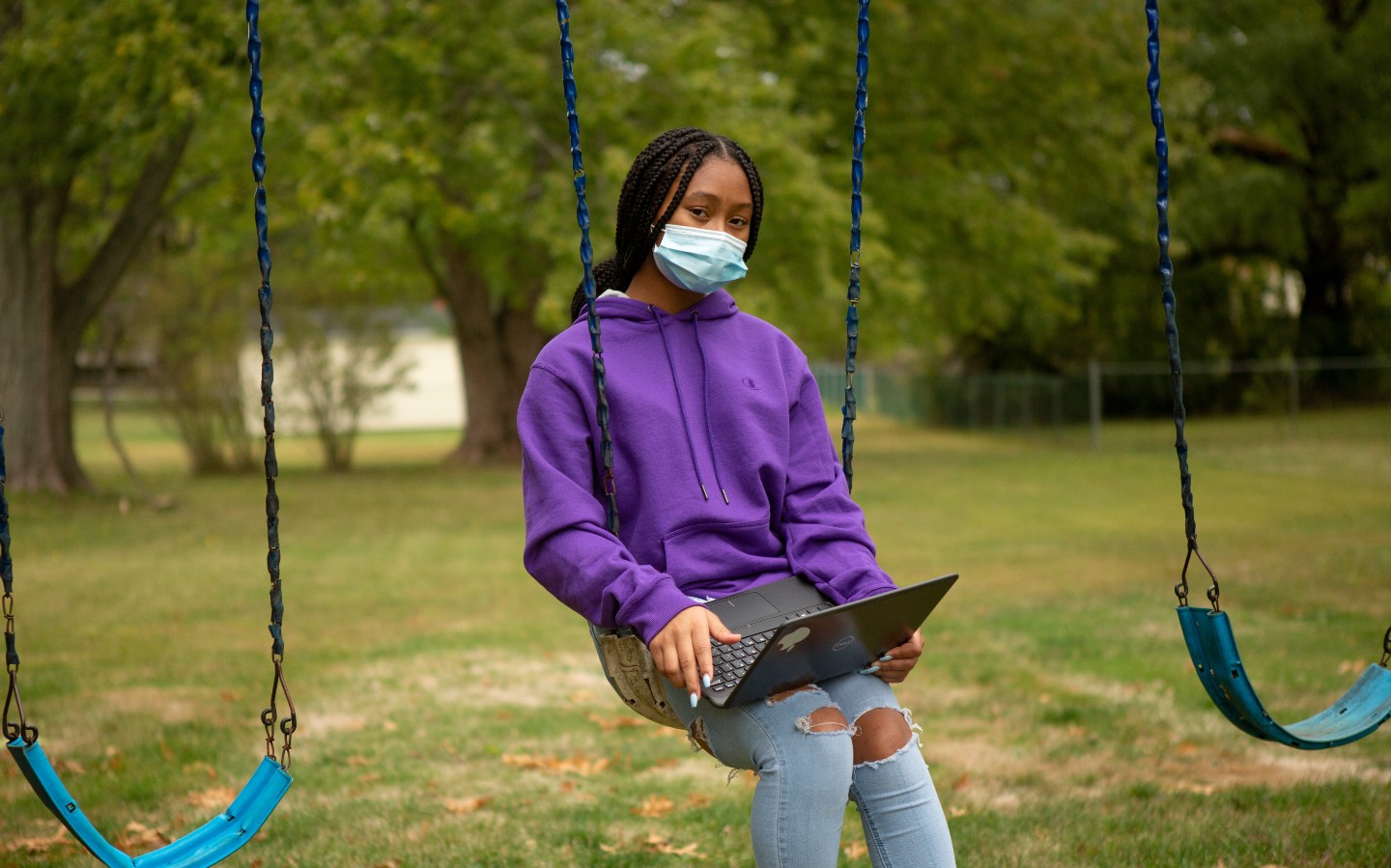
What have you learned about your students?
Jason Rude: Our students understand what is at stake. We do not have arguments about wearing masks or taking care to social distance. We have learned just how badly our students want to be in the building with us. When they get quarantined, they despise it. I’ve also learned that our students’ opinions are being very strongly influenced by their parents (more than I thought).
Kelly Rowland (OH): They are scared and miss the structure and safety of being in school.
Dave McIntire (KS): They are willing to rise to the challenge if what we offer is authentic and timely.
Karen Richey (CA): I have been all virtual since March of 2020. As I prepared to begin the 2020-2021 school year with a new group of students, I agonized over how to create a class community in the virtual space. My students are incredibly resilient. They arrive in the Zoom every day willing to contribute to our community. Participation is different. Checking for understanding is different. I would probably not recognize many of my students if I saw them on the street as many do not turn on their cameras for a wide variety of reasons. I may not have learned all their faces, but I do feel like I know their hearts and spirits.
Share a successful moment of teaching this year.
Susan Scola: Looking at works of art has been successful. Looking slowly and reflecting on what is seen has been beneficial to making connections with current events.
Kelly Rowland: I had students create presentations on a history text, historical text, or historical graphic novel. They also had to create a playlist or movie poster that explained what they read- I was amazed at the effort and creativity that went into these projects. One of my students even made up his own songs for the playlist.
Dave McIntire: I normally do a colonial marketing project every year. We couldn’t do the project this year because it requires students to work physically closely together . So the students and I brainstormed and created the Jamestown Minecraft Company (JMC). We divided into crews and researched the colonial period. Then, each crew was interviewed by the JMC for seaworthiness. If they passed, they went to Minecraft Jamestown and tried their hand at surviving. The cool part was the assessment (the interview) showed me they knew their colonial period better than they probably would have in normal times because of their motivation to be a Minecraft Colonist.
Caitlin Goodwin: While studying the American Revolution, I brought my 7th graders outside to reenact the Battle of Bunker Hill in the snow. They had an absolute blast just being kids. I loved seeing them in this element and felt that in this crazy year, with so many missed opportunities, it was great to see them so happy!
What has been the hardest part about being an educator during the pandemic?
Kelly Rowland: Being an educator, this year has made me aware of the struggles that teachers, parents, students, and admin all face. In order to make this a successful year, we need to keep in mind that this is an unprecedented time and therefore calls for unpresented and out of the box thinking when it comes to learning and engaging students.
Caitlin Goodwin: I know that it’s been a difficult year for everyone, but I was disheartened by the way many areas/people treated teachers as though they were expendable. It became clear to me that teachers are viewed as childcare providers and that people expected them, yet again, to sacrifice themselves for their children.
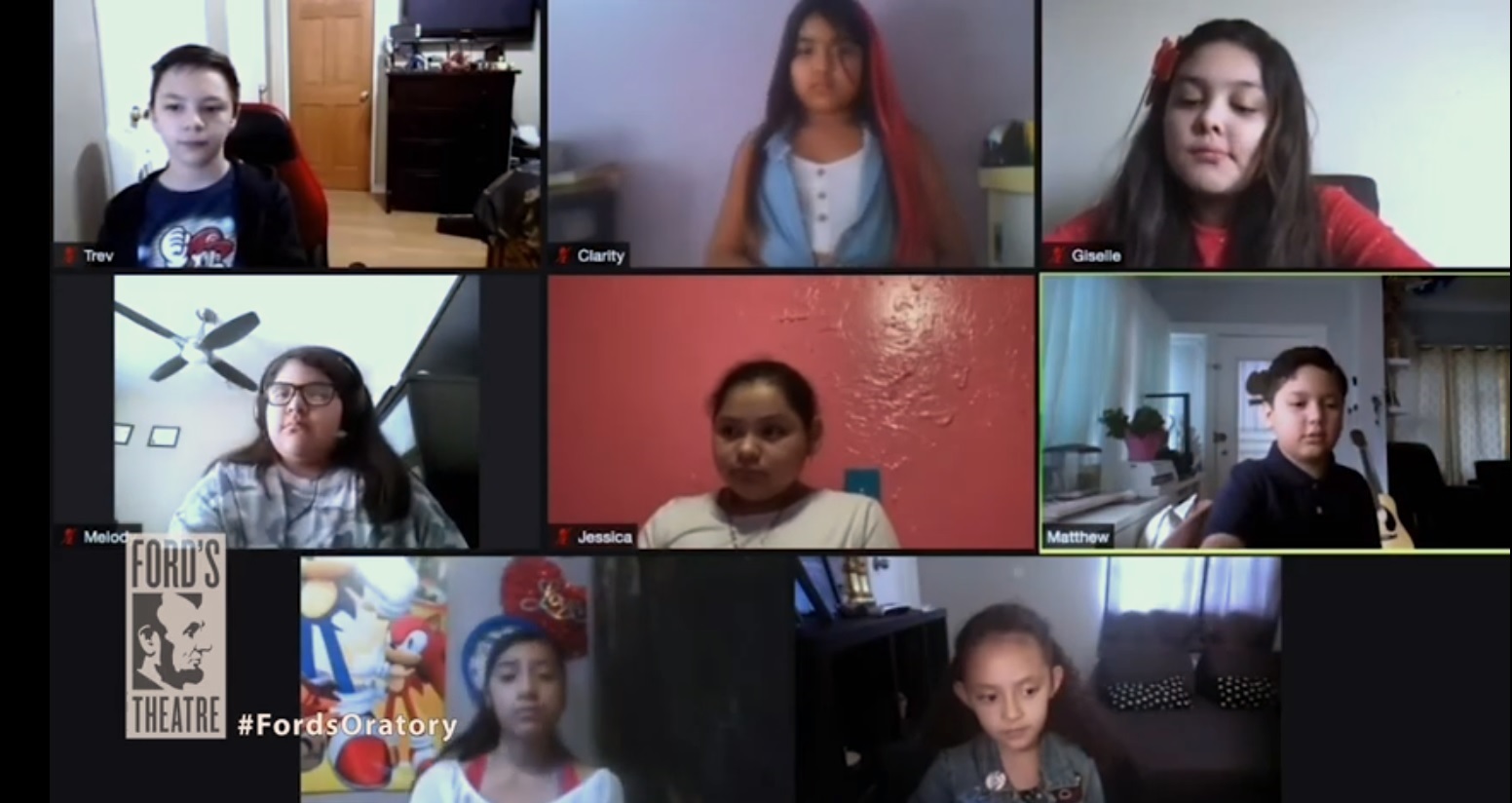
Karen Richey: The hardest part of teaching during the pandemic is not being together. I was not able to say goodbye to last year’s students. I have not met this year’s students in person most have never been on our school campus. Until the pandemic, I had never realized how much I relied on non-verbal communication to “check” on my students’ understanding and well-being. Difficult conversations without eye contact are even more difficult.
Amber Obert (ID): It is hard to get families and students to take ownership of the learning process. I worry a lot more about what is happening at home; and we are seeing more issues of neglect or students as young as 6th grade being kept home to take care of younger siblings.
Share a moment that broke your heart.
Karen Richey: I’m teaching from school, but my students are at home. We still don’t know if students will come to campus this school year. The first-time students realized I was at school, more of them turned on their cameras and put their faces close to their screens. They wanted to “see” the classroom. That broke my heart. Such a simple and ordinary thing in normal times. It was a reminder that these are not normal times.
Kelly Rowland: My school went back to brick and mortar and I was asked to stay online for the rest of the year.
Dave McIntire: Students who have decided that they can’t trust truth.
Caitlin Goodwin: It was very difficult for me to watch what the seniors missed out on last year and this year. I feel terrible that so much has been taken from them during what is supposed to be such a memorable time in their lives.
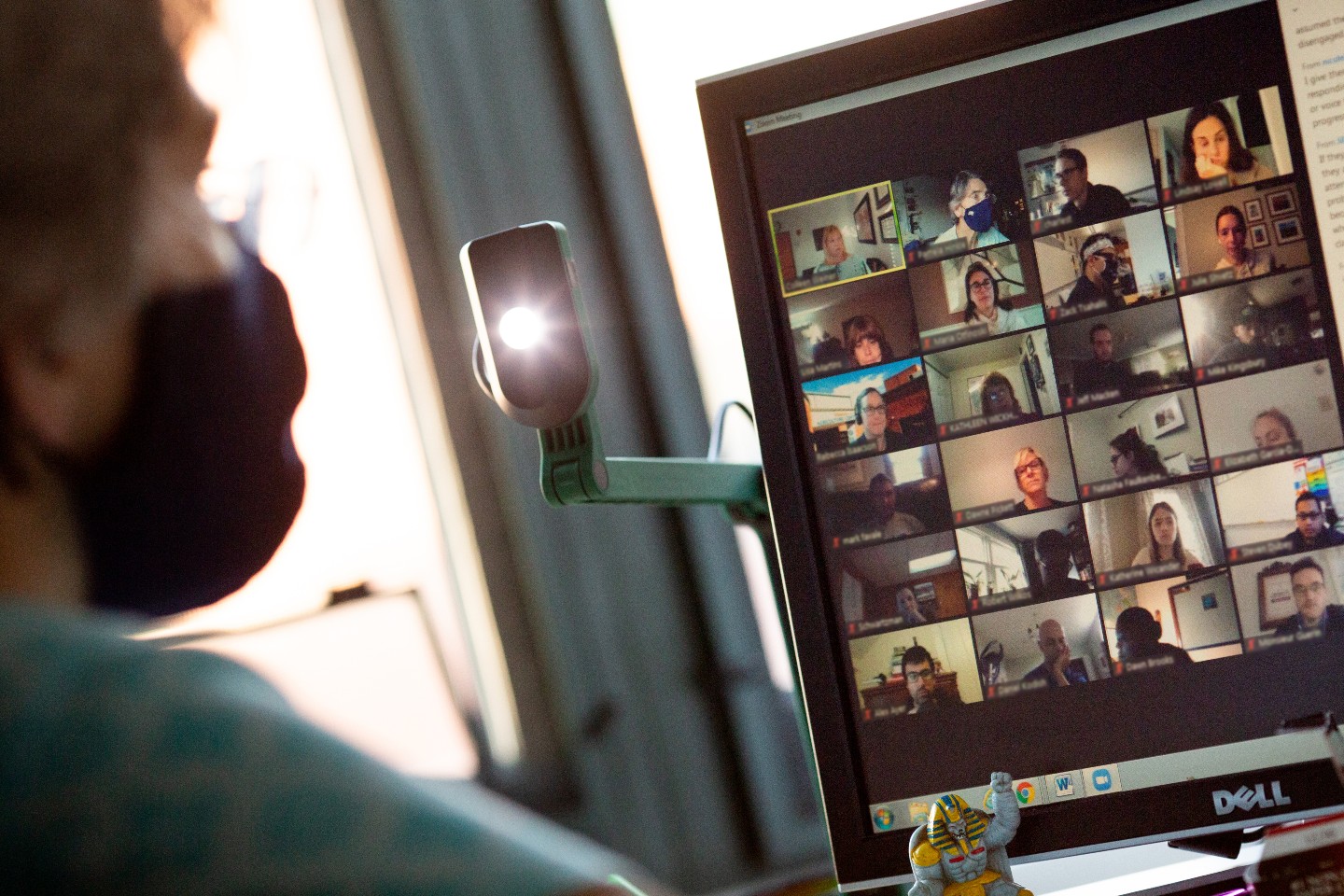
What is something you’d like to tell parents about this year?
Susan Scola: Not to be worried about children falling behind. Students have learned much in this time, beyond content.
Amber Obert: Your kids are growing and learning to think for themselves. It’s ok to let them struggle. Check in with them often and give them love. This is hard for all of us.
Karen Richey: I appreciate you. Parenting is already challenging. Parenting during a pandemic adds so much more stress. Thank you for supporting your children and their teachers. Thank you for being patient with all the different reopening plans and surveys. Thank you for allowing us into your homes.
What would you like your students to know about this year?
Karen Richey:I am proud of my students. They are remarkable. They come to class and work hard. They understand historical moments better than any group of students I have ever taught because they are living through one. They inspire me to do my best for them every day. I look forward to meeting them in person.
Susan Scola: That they are living history, primary sources in the making. Also, that I am proud of them for persevering and taking ownership of their learning.
Amber Obert: They are wonderful and amazing and I’m prouder of them then they’ll ever know.
Kelly Rowland: That I am so proud of their perseverance in an unprecedented time
Jason Rude: You are amazing people. You are adaptable, thoughtful, and malleable. Keep doing the amazing things that you are.
Dave McIntire: We will get through this, I am convinced.
Whether it is stepping out of comfort zones, working extra-long days, or jazzing up lessons, teachers are working hard to meet the needs of all their students. Grace is an excellent word for everyone to apply as we move through this period. Most people are doing the best with what they have. Teachers are rock stars and deserve tons of applause and thanks for the challenging work they do.
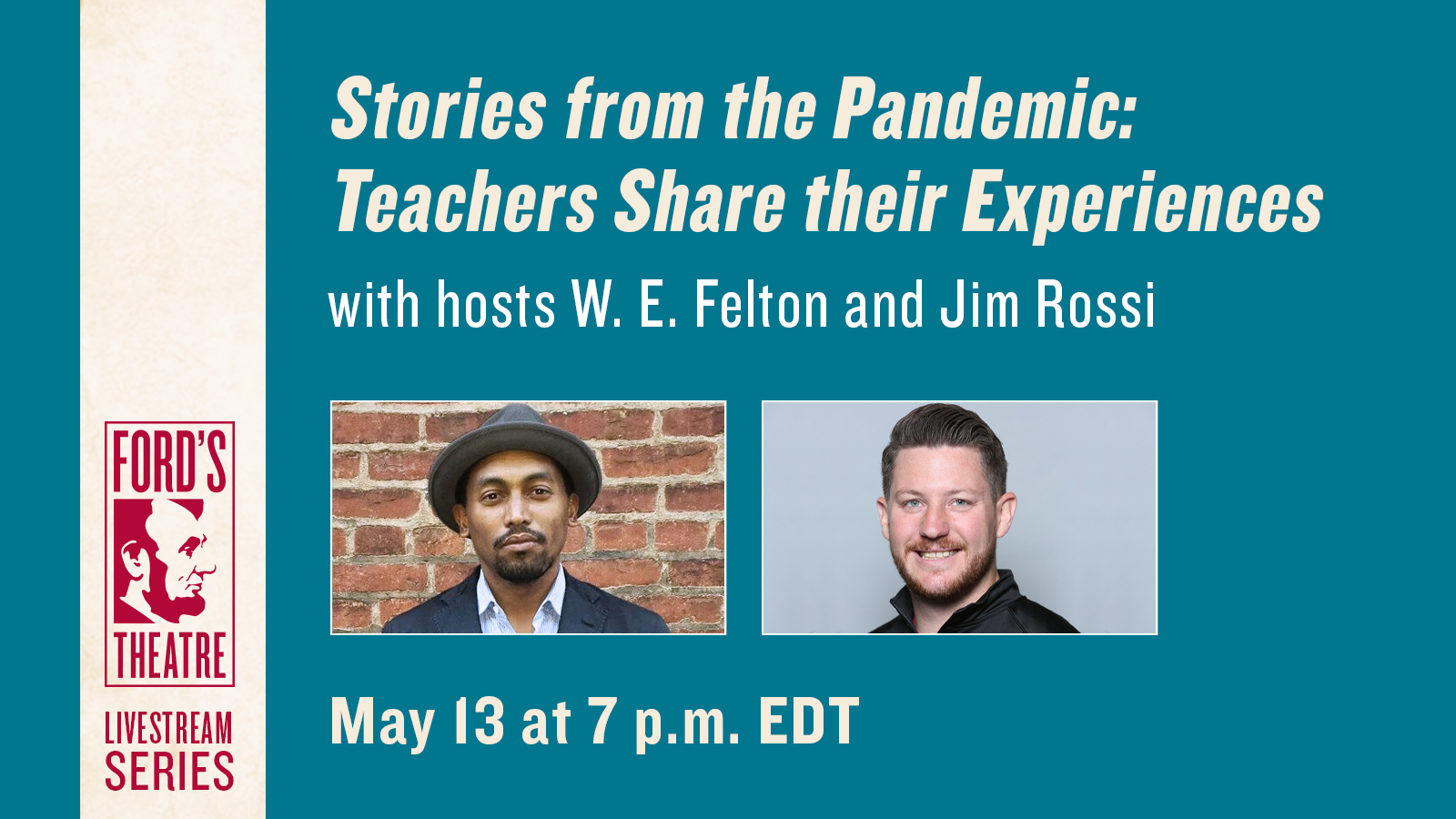
On May 13, 2021, at 7 p.m. EDT, join us online for our National Oratory Fellows storytelling night. Our Fellows will share about their experiences during this pandemic year in a virtual event simulcast on the Ford’s Theatre YouTube channel, Facebook page and Twitter channels (@FordsEdu and @FordsTheatre).
If you’re an educator seeking lesson plans or ways to supplement resources about Abraham Lincoln and the Civil War era, oratory or theatrical programming, visit our teacher resources page on the website.

